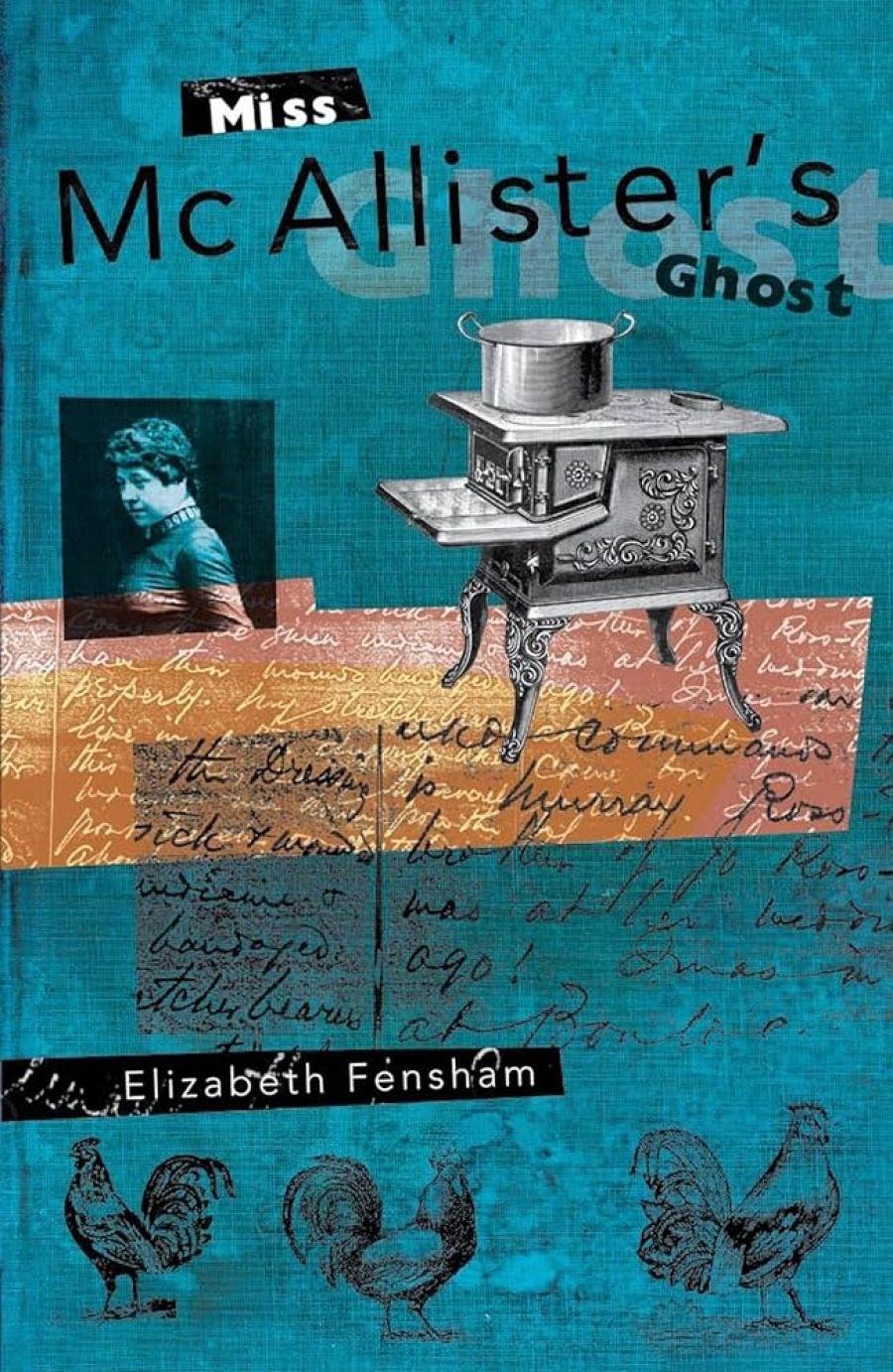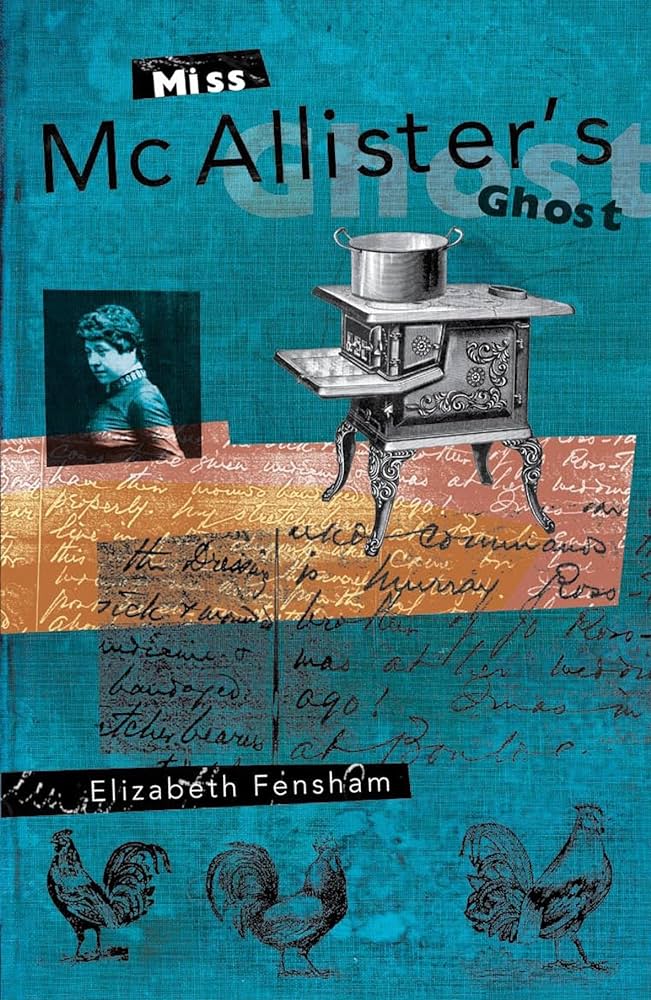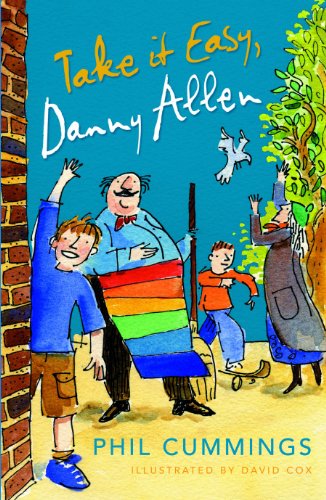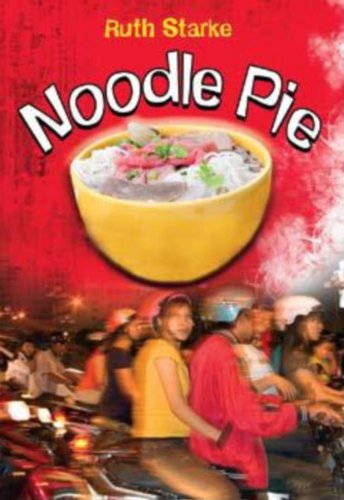
- Free Article: No
- Contents Category: Children's Fiction
- Review Article: Yes
- Article Title: Second impressions
- Online Only: No
- Custom Highlight Text:
Childhood is full of revelatory moments; sometimes shocking instants of understanding that people, events and relationships are not as they seem. They can happen in adulthood too, but those in childhood can have an intensity that makes them deeply formative. They might be subtle eye-openers or life-changing epiphanies, but they all cause a shift in perspective that changes one’s perception of the world. These six new books contain transformative moments for their protagonists, from the realism of family secrets to the fantasy of high-adventure mysteries.
- Book 1 Title: Miss McAllister’s Ghost
- Book 1 Biblio: UQP, $18.95 pb, 281 pp
- Book 1 Cover Small (400 x 600):

- Book 1 Cover (800 x 1200):

- Book 2 Title: Take it Easy, Danny Allen
- Book 2 Biblio: Pan Macmillan, $14.95 pb, 211 pp
- Book 2 Cover Small (400 x 600):

- Book 2 Cover (800 x 1200):

- Book 3 Title: Noodle Pie
- Book 3 Biblio: Scholastic, $16.95 pb, 242 pp
- Book 3 Cover Small (400 x 600):

- Book 3 Cover (800 x 1200):

Almost every neighborhood has a witch or ghost house of schoolyard urban legend. When Wilf, in Miss McAllister’s Ghost, by Elizabeth Fensham (UQP, $18.95 pb, 281 pp), breathlessly announces that he has seen a ghost, his family is understandably sceptical. Mum is busy with an endless string of nursing shifts, interspersed with self-empowerment courses, and Dad is interested only in beer, television and occasional acts of violence. So it is up to Wilf’s siblings, Cass and Mick, to learn the truth behind their brother’s fears. They climb the fence into Miss McAllister’s garden and discover a world stuck in time, a lifestyle of button-up boots, boiling the washing and resting on Sundays. As the house increasingly becomes a place of sanctuary and growth for these latch-key children, the mystery surrounding Miss McAllister deepens. Why has she remained cut off from time? And what is she hiding in the back shed? Miss McAllister’s Ghost is, as Cass phrases it, a ‘cosy story’; comfortingly old-fashioned in a SecretGarden/Little Women kind of way. This has its disadvantages; the demonised parents remain gratingly undeveloped, and some of the ‘lessons’ are a little heavy-handed: ‘We had earned a day off. Having worked hard for it, the freedom was so much sweeter.’ But the detailed descriptions of life in a bygone era are charming, and the closing moments, while leaving much unresolved, are quite moving.
Phil Cummings’s Take it Easy, Danny Allen (Pan Macmillan, $14.95 pb, 211 pp) also addresses the chasm between appearance and truth. When Danny Allen’s family leave the farm in Mundowrie and move to the city, Danny is frightened and unwilling to abandon his country home. His Mundowrie mate Thommo has told him all about the terrors of city life and city people – they’re all dangerous, crooked or crazy – so Danny is determined to be extra careful. One night he sees something happen between old Mad Maggie and Mr Caruso, the cakeshop owner. He can’t quite make sense of it, but he is sure they are up to something dodgy. As Danny begins to explore his neighbourhood with some newfound friends, he uncovers more about the connection between his eccentric neighbours. There is an honesty and ease to Cummings’s storytelling, complemented by David Cox’s laid-back illustrations, that makes this second book about Danny Allen an endearing novel. Danny’s tales of Mundowrie are full of exuberance and laconically amusing characters, and, though his new city life doesn’t quite match Cummings’s evocation of the country, there are enough adventures and colourful new characters to push the story along. Danny’s fear of the city and his longing for Mundowrie are touchingly drawn, and his changing impression of his new home is nicely shown without a sense of ‘I told you so’.
Andy’s first impressions of his Vietnamese relatives, in Ruth Starke’s Noodle Pie (Scholastic, $16.95 pb, 242 pp), are less than favourable. It’s his first trip to Vietnam, and the first trip back home for his former refugee father. Watching his relatives squabble over gifts and boss around the less important members of the family, he concludes that the Vietnamese are selfish, hypocritical and rude. He can’t understand why his casually dressed father suddenly dons a suit and fancy new jewellery. When Andy has a bright idea to upgrade the family restaurant, he encounters some truths and lies about his father and extended family that shows them all in a new light. As he begins to see past the cultural cringe of his relatives to the real people underneath, his appreciation of his own Australian upbringing also changes. It would be hard to fault this excellent new book from Starke. Her touch is light and sure-footed, and the book is full of amusing observations from culture-shocked Andy. His experience of a completely different world will seem as bizarre and shocking to many young readers as it is to Andy. The realities of Vietnamese refugees and the families left behind are accurately represented, but never become too grim for the book’s intended young audience, and Starke takes care to balance the country’s situation with more positive developments.
Sandy Fussell’s Samurai Kids: White Crane (Walker Books, $14.95 pb, 252 pp) examines the flip side of first impressions: what it’s like to be on the receiving end when others judge by appearances. The students at Cockroach Ryu (school) are not standard samurai warriors. Niya has one leg, Mikko has one arm, Kyoko is albino with extra digits, Taji is blind, and big strong Yoshi refuses to fight. Turned away from all other ryu, they train under Sensei Ki-Yaga, an ancient samurai warrior who teaches them that their differences can make them stronger. The kids of Cockroach Ryu are mocked and always come last in the Samurai Games, but this year they are determined that the outcome will be different. This first book in the Samurai Kids series foregrounds its messages about the power of friendship and the importance of not judging by appearances. While the present-tense writing style brings a sense of immediacy to the story, the action often seems to be over too quickly, before there is time to register any tension. Effective full-page illustrations by Rhian Nest James draw in the reader with their angled perspective (often positioning the observer below or above eye level). The samurai code of Bushido detailed throughout the book will fascinate many young readers, and Sensei’s Mr Miyagi-style pronouncements should produce many smiles.
As the narrator of Patricia Bernard’s Claw of the Dragon (Scholastic, $17.95 hb, 220 pp) writes in his diary, he looks up to see a larger boat approaching his own craft. This initially innocuous moment quickly propels Billy Shanghai Hamilton into an alien world. He has been ‘blackbirded’, kidnapped by pirates to work on a pearling boat where many of the crew are slaves. Billy struggles to stay alive and return to his family, encountering pearl-mad thieves, brutal ship captains and mutinous crews. Claw of the Dragon forms part of the My Australian Story series (based on the American version Dear America), which present a period or event in Australian history in fictional diary format. The diary requirement is instantly problematic for stories such as this one which entail adventure rather than reflection, and it often results in a feeling of missing out on the action. The Broome of 1899 makes for excellent subject matter that would have benefited more from a standard first-person narrative. Some parts of the book are written in this way; despite being a lapse in ‘diary’ style, these are more persuasive. The depiction of the Western Australian coast at this time, populated by ‘Chinamen, Javamen, Manilamen, Indians and Afghanis’ as well as Europeans and indigenous people, offers an absorbing snapshot of history and a welcome contribution to dispelling the myth of ‘White Australia’.
Michael Pryor’s second book in the dinosaur-populated Chronicles of Krangor: The Missing Kin (Random House, $14.95 pb, 193 pp) features personal discoveries of the fantastical variety. Saurs Adalon and his friends are exploring the Lost Castle for information about its mysterious previous inhabitants when they discover a room full of statues and maps. Closer examination suggests that the ‘Missing Kin’ of saur legend might still exist. The three friends set off to search for these winged saur, and convince them to join their fight to stop Queen Tayesha from destroying the land in her power-mad quest to rule all Krangor. This is straightforward quest fantasy in the style of the Deltora books (2000–05). It is a pacey, exciting adventure, if slightly unmemorable, and fans of the first book (The Lost Castle, 2007) will rip through The Missing Kin. The continuing mysteries, unfinished quests, and teaser chapter at the end of the book will propel readers on to the next instalment.


Comments powered by CComment